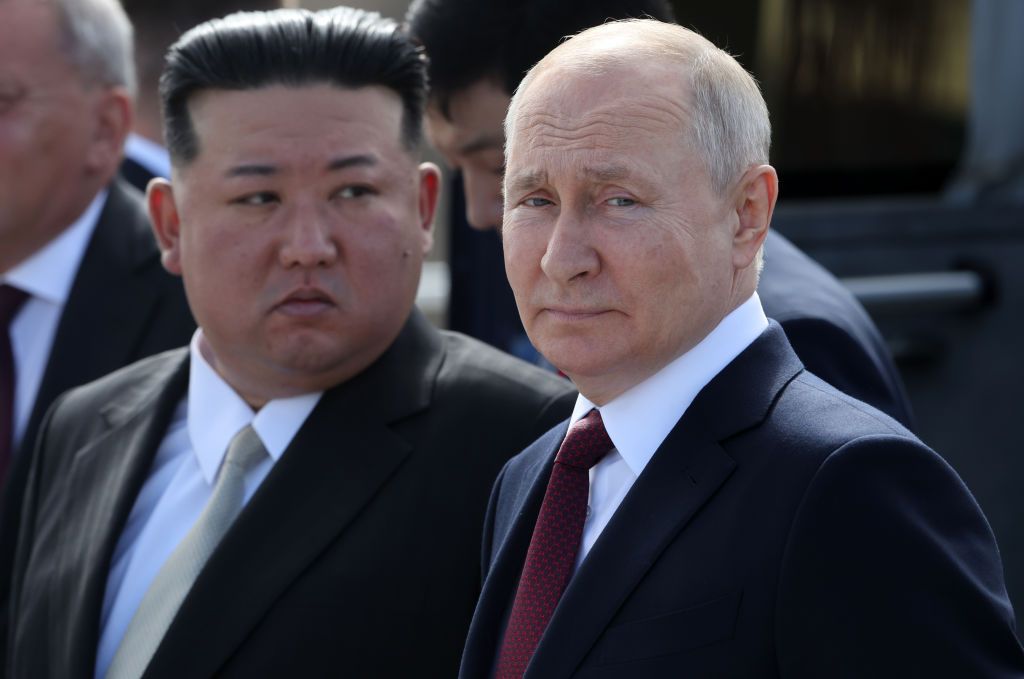Media: North Korea possibly provided Russia with short-range ballistic missiles

North Korea may have provided Russia with short-range ballistic missiles, together with artillery shells and other weaponry, the Yonhap News Agency reported on Nov 2, citing a senior South Korean military official.
Seoul estimates that Pyongyang shipped around 2,000 containers of weapons and munitions to Vladivostok in Russia's Far East. This is a notable increase from the 1,000 containers reported by the White House on Oct. 13.
This volume is capable of carrying over 200,000 122 mm artillery shells or over 1 million 152 mm shells, which are used by both countries, Yonhap wrote.
South Korean lawmaker Yoo Sang-bum said on Nov. 1 that according to the country's intelligence, North Korea has likely sent over a million artillery shells to boost Russia's war against Ukraine.
Aside from artillery munitions and possibly short-range ballistic missiles, Pyongyang likely provided Moscow also with T-series tank ammunition, anti-tank guided missiles, rocket launchers, rifles, and machine guns, the South Korean military said.
North Korea and Russia have been growing closer in recent months as the Kremlin seeks to boost its arms capacities amid its ongoing invasion of Ukraine.
North Korean dictator Kim Jong Un and Russian President Vladimir Putin met in Russia's Amur Oblast in September to discuss cooperation in space and missile technology, and presumably also arms supplies for Russia's war against Ukraine.
Seoul believes that in return, the Kremlin promised Kim technological assistance to help North Korea launch its first military reconnaissance satellite and cooperation in conventional military capabilities.












